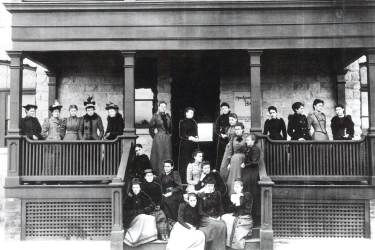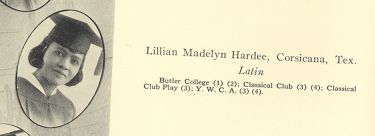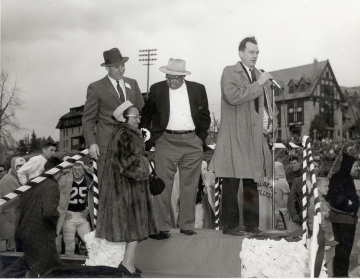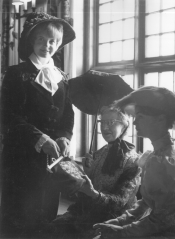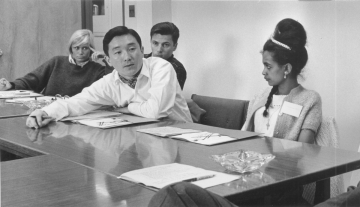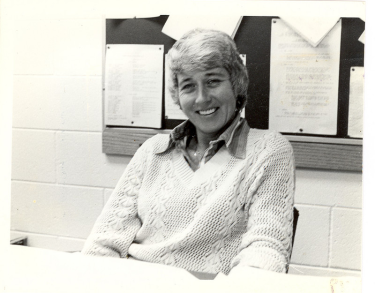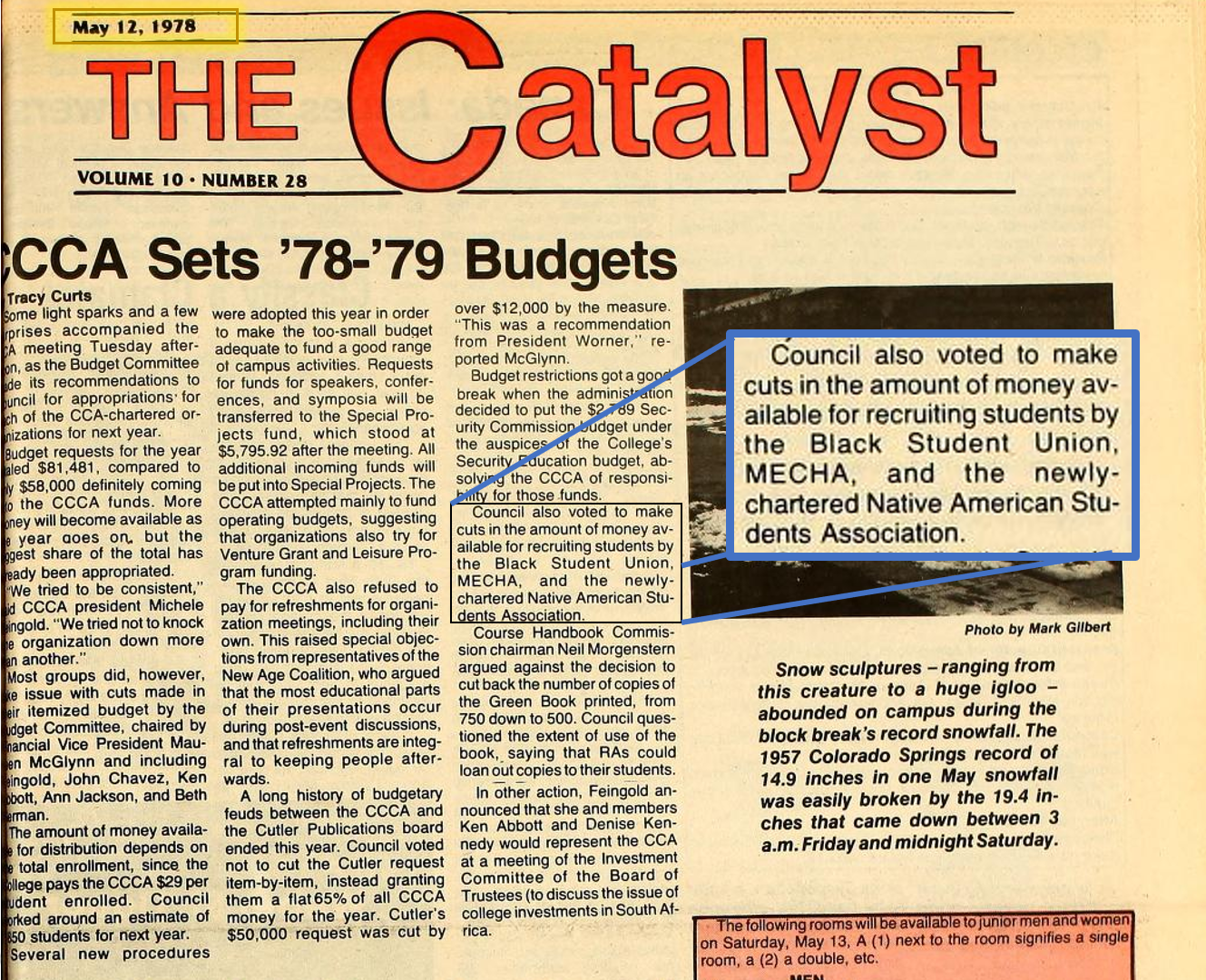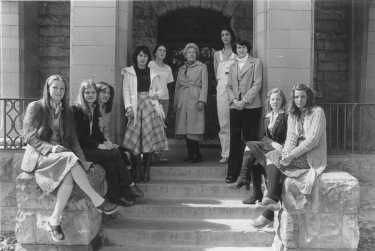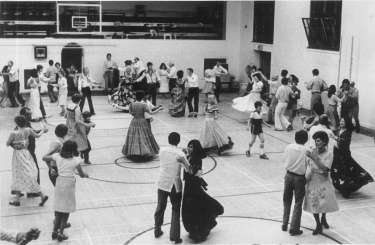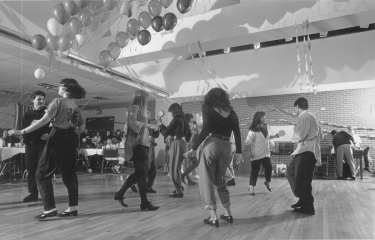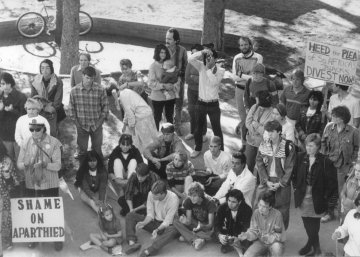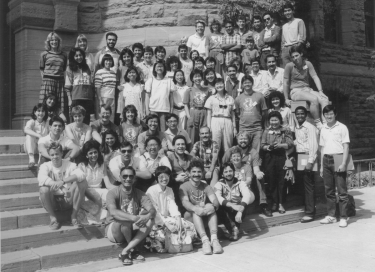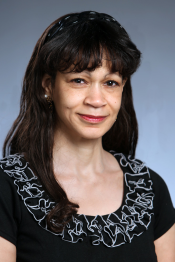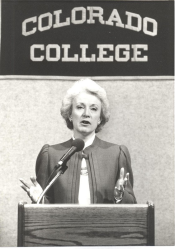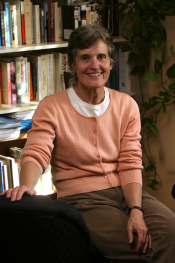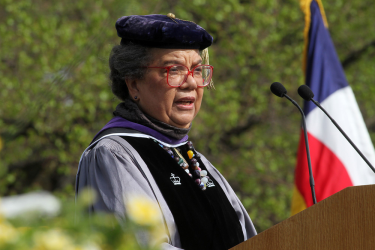A Timeline of CC History
Colorado College is located within the unceded territory of the Nuùchi (Ute) Peoples, and the college recognizes and honors the original inhabitants who first settled in the area. In 1871, General William Jackson Palmer, founder of the Denver and Rio Grande Railroad, laid out the city of Colorado Springs along his new line from Denver. Palmer envisioned a place of beauty, culture, and substance that would benefit both the body and spirit of its residents. Twenty acres in the townsite set aside for a college represented an integral part of Palmer's plan.
Colorado College held its first classes on May 6, 1874, only three years after Palmer founded the city and two years before Colorado became a state. From the moment of its inception, Colorado College was a coeducational institution, "open to both sexes and all races." Twenty-five students were in attendance, among them 13 men and 12 women in the first class.
This timeline highlights other significant moments in CC history.
Original Inhabitants

Colorado College is located within the unceded territory of the Nuùchi (Ute) peoples. The land was also utilized by the N’de (Apache), Hinono’eino (Arapaho), Numinu (Comanche), and Tsitsistas (Cheyenne) peoples. These first inhabitants called the nearby highest mountain “Tava,” the original name given by the Ute people to what is now known as Pikes Peak. An extended list of tribes with a legacy of occupation in Colorado is included here: Colorado Tribal Acknowledgement List.
Palmer the Abolitionist

On July 31, 1871, General Palmer established the city of Colorado Springs. Palmer was a passionate opponent of slavery. As a young man in Philadelphia, he helped organize a controversial lecture series featuring prominent abolitionists. At one talk, 600 armed police officers were called in to hold back pro-slavery mobs. He was a Quaker and a pacifist, but believing slavery a greater sin than war, he enlisted at age 25 and led a volunteer troop that became the 15th Pennsylvania Calvary. After the war, he contributed financially to educational efforts for formerly enslaved people of the South, including making significant donations to Hampton University, which was built for African-American students. Palmer Hall is named for him.
Inception
From the moment of its earliest inception, Colorado College was intended to be a coeducational institution, "open to both sexes and all races."
First Classes
Colorado College held its first classes on May 6, 1874. Twenty-five students were in attendance, among them 13 men and 12 women in the first class sessions.
First White Female Faculty Member
The first known white female faculty member at Colorado College was Minna Knapp from Germany. She assisted with the teaching of German and music. Mary S. Mackenzie was also present in the early days of the college, assisting a male professor with his teaching duties. In the style of the time, Miss Mackenzie, who subsequently married, was identified by her married name, Mrs. Cornelius S. Gambrill.
First Literary Society
Male students organized the first literary society called Phi Delta Pi; it met each Friday night. The purpose of the club was to improve the speech and debate skills of the students. Public literary exhibitions, including declamations, orations, and debates were presented every Friday night.
Cutler Hall

Colorado Springs founder Gen. William J. Palmer set aside land for the college 10 blocks north of downtown. The first permanent building on the Colorado College campus eventually became known as Cutler Hall. The central portion, which included a library, classrooms, and an auditorium, was completed in 1879. Two wings were added in 1881-1882. The building was at first unnamed or known simply as “The College.” The building was named Palmer Hall for Gen. William J. Palmer in 1889. When a new building named Palmer Hall was constructed, it was renamed Cutler Hall to honor Henry Cutler, a generous benefactor of the college.
First White Female Graduate
Agnes Caldwell 1886, fifth person to graduate from the college, during a time when the idea of a college education for white women was still a radical concept.
Woman's Educational Society
The Woman's Educational Society (WES) of Colorado College was formed in April under Mary Montgomery Slocum's leadership (the wife of Colorado College's third president, William Frederick Slocum) to give "physical, intellectual, and spiritual aid to young women who are students in any department of Colorado College." The organization was intended to act as a bridge between female community members in Colorado Springs interested in supporting the growth of the college and female Colorado College students.
Montgomery Hall opened as the first permanent residence for women.
Minerva Literary Society
On October 14, Eloise Wickard of the English Department invited five girls to her home. The result was the formation of the Minerva literary society. The society received enthusiastic approval and support from the college.
First African-American Alumnus
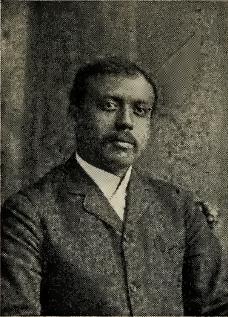
William S. Braddan, an African-American clergyman born in 1871, attended Cutler Academy from 1891-1892, a preparatory school that was attached to Colorado College between 1889-1914. Braddan went on to serve as chaplain of the 370th Infantry, an African-American army unit, during World War I. He later wrote of his experiences in a 1928 memoir, "Under Fire," the only first-person account of an African-American soldier serving in France.
White Women's Right to Vote
Colorado became the first state in the United States where white women were granted the right to vote in all elections.
Katharine Lee Bates
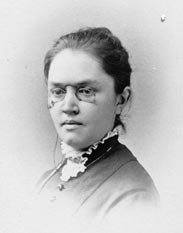
During the summer, a professor of English at Wellesley College in Massachusetts, Katharine Lee Bates, came to Colorado Springs to teach in the Colorado Summer School of Science, Philosophy, and Languages, hosted by Colorado College. During her time at the college, Bates took a wagon ride to the summit of Pikes Peak, the 14,110-foot high mountain located to the west of Colorado Springs. The beautiful views she saw from the mountaintop inspired her to write a poem, later set to music, entitled "America the Beautiful."
First International Student Graduates
The college graduated its first international student, Taizo Nakashima, from Japan.
First White Dean of Women
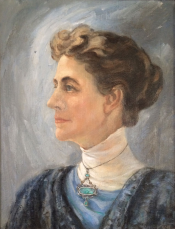
Ruth Loomis was appointed Colorado College's first white dean of women. Through her work, she aimed to bestow a legacy of elevated moral standards and social etiquette for women at the college. It was stated that Loomis, in effect, "maintained a college for women in a coeducational institution." Loomis was the first administrator of either sex hired by Colorado College.
Residential Capacity for Female Students
The residential capacity for female students increased three-fold with the building of Ticknor Hall.
More Societies for Females
The Minerva literary society founded in 1891 proved so successful it was followed by two other female societies in 1899, Contemporary and Hypatia. The societies organized socials, dances, picnics, musicals, and banquets alongside their literary and debate activities.
Booker T. Washington
Booker T. Washington, African-American educator and founder of the Tuskegee Institute, spoke to a standing-room-only crowd at Colorado College on January 28.
Another Residence Hall for Women
McGregor Hall, the third hall for women on campus, opens with funds raised by the Woman's Educational Society (WES).
Palmer Hall

The completion of Palmer Hall in 1904 marked the crowning achievement of President William F. Slocum's 1888-1917 construction-filled tenure and provided the campus with one of its best-loved landmarks. Boston architectural firm Andrews, Jacques, and Rantoul designed the Romanesque Revival-style building utilizing beautiful “peachblow” sandstone from a quarry on the Frying Pan River in Pitkin County, Colorado.
The building's name honors General William Jackson Palmer, founder of Colorado Springs, Civil War veteran, president of the Denver and Rio Grande Railroad, and longtime friend of the college. Palmer is the likely donor of a $100,000 anonymous donation made with the stipulation that the building be placed here, effectively blocking a planned streetcar line that would have bisected the campus.
Breaking the Color Line
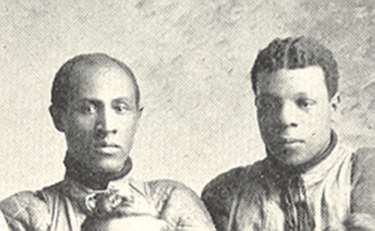
The color line was first broken in Colorado intercollegiate athletics when two African Americans, Fred Roberts and Charles Jackson, played on the undefeated 1905 football team.
First known (male) Jewish student
Walter S. Goldfrank, the first known (male) Jewish student at CC, graduated in 1905. He later married renowned anthropologist Esther Schiff Goldfrank.
Student Government for Women Students
The Student Government Association for Women Students was founded to provide "the utmost freedom of individual action possible in community life with the highest mental and moral development." By having their own student government, female students played an active role in writing and enforcing the rules under which they conducted their social lives. The organization was later renamed the Quadrangle Association, which gave way to the Associated Women Students (AWS) that united all women on campus in a common organization.
Alumnus Starts African-American Newspaper
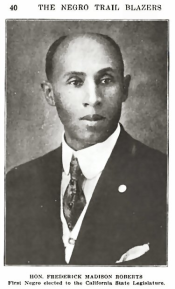
After graduating from Colorado College in 1906, Frederick Roberts began an African-American newspaper in Colorado Springs called The Light. He was also the vice president of the Freemen Mining and Development Company and a delegate to the National Negro Business League Conference. In 1918, he moved to Los Angeles, his home city, and became the first African-American elected to the California State Legislature.
First All-College Student Governance
Student Commission (later known as the Associated Students of Colorado College) formed as the first all-college student governing organization.
Josephine Morrow
Josephine Morrow became the registrar at Colorado College. Morrow held the position for 37 years, until 1947.
First White Woman with a Ph.D. to Teach
The first white woman with a Ph.D. to teach was Leila Clement Spaulding, who taught classics from 1911 to 1914. She also was the resident female faculty member in Ticknor Hall (a women's dormitory). After Spaulding, Colorado College began hiring more female faculty members with a Ph.D.
First known female Jewish student
Mollie Hanowitz, the first known female Jewish student at CC, graduated with High Honors in 1913. She went on to work as the District Secretary of Newark Bureau Associated Charities in New Jersey.
Eleanor Davis
Eleanor Davis served as director of women's athletics from 1914 to 1930.
Pi Kappa Alpha
Pi Kappa Alpha was established.
Mabel Barbee Lee
Mabel Barbee Lee became dean of women in 1922. She was faced with the challenge of adapting social policies for women at the college to keep pace with shifting national attitudes, as students began to vocalize their discontent with administrative policies that dictated students' social lives.
Marcus Garvey Speaks at CC
Marcus Garvey, the Jamaican political leader, journalist, and orator, visited Colorado Springs in the spring of 1922. Speaking at Perkins Hall, his speech was compared by the Colorado Springs Gazette to the oratory work of Booker T. Washington. A fierce proponent of black nationalism and Pan-Africanism, Garvey was the founder of the Universal Negro Improvement Association and African Communities League (UNIA-ACL).
Lillian B. Hardee
Lillian B. Hardee, class of 1923, is the first known African-American woman to graduate from Colorado College. (She is not, however, the first African-American woman to attend CC - that was Edna Deason Walker, who took classes at CC from 1910 to 1913.) Very little is known about Hardee, other than that at some point she married a man named Eric G. Bodden.
Delta Alpha Phi
Delta Alpha Phi was established, bringing the total to seven fraternity chapters on campus.
Broadmoor Art Academy

The Broadmoor Art Academy began providing studio art courses for CC students as part of an agreement with Colorado College. Students attended for-credit classes taught by nationally prominent artists at 30 W. Dale St., which had been the home of Spencer and Julie Penrose. It would become the Colorado Springs Fine Arts Center site a decade later.
Louise Kampf
Louise Kampf served as the college librarian for 29 years from 1929 to 1958.
"New Colorado College Plan"
The faculty and Board of Trustees approved the "New Colorado College Plan" for the 1930-1931 school year. The plan included the transformation of literary societies on campus into nationally established sororities during the 1930s, under one condition: women would not live in their sorority houses the way men lived in fraternity houses. The four women's literary societies existent at the time were reorganized as chapters of national sororities. Minerva was made Delta Gamma, Contemporary became Kappa Alpha Theta, Hypatia was accepted by Kappa Kappa Gamma, and Zatalathian became Gamma Phi Beta. Female students not interested in Greek life started more inclusive social groups such as the "Barbetts," the "Campus Club," and "Independent Women."
Stroud Siblings
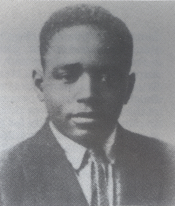
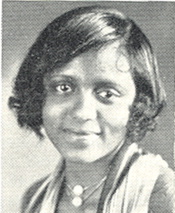
Stroud siblings Effie Evelyn and Kelley Dolphus both graduated from Colorado College in 1931. Dolphus was the first African-American Phi Beta Kappa graduate at CC. Effie received a master's degree in library science at Columbia University and became head of the New York Public School library system. In 1991, Colorado College held a banquet in her honor and presented her with a plaque of recognition.
World War II
With a majority of male students absent during World War II, women took greater charge of student activities on campus. Female students took major responsibility for serving on student government, publishing the student newspaper, and publishing the yearbook.
International Student Program
In cooperation with the Institute of International Education (IIE), the college initiated an international student program with each of the five fraternities present to provide room and board for male international students. The federal government paid their tuition through IIE. A newly formed Foreign Student Committee, composed of students, administered the program under the guidance of a professor. In following years, the program was expanded to include female students after the four sororities and the Woman's Educational Society (WES) made arrangements for their support.
State Representation
The student body had grown to represent 45 states.
Alpha Phi
Alpha Phi was installed as the fifth sorority on campus.
Foreign Student Program
A Foreign Student Program was established to "help promote a better understanding between the United States and other countries of the world."
Co-ed Dining
Taylor Dining Room becomes the first co-educational dining hall on campus.
Hungarian Refugees
Two refugees from the Hungarian Revolution, Paul Szilagy, and Lazlo Torma, enrolled at the college under the sponsorship of the Foreign Student Program.
Summer Crossroads
Foreign Student Committee joined with a group of townspeople, headed by Elizabeth Wright Ingraham, to sponsor the Summer Crossroads, a program in which international students from other colleges and universities convened at Colorado College for a week before returning to their homelands - this program lasted for over 30 years until 1991. Elizabeth Wright Ingraham was a local architect and partner at the firm Ingraham and Ingraham. Elizabeth was also the granddaughter of the world-famous Frank Lloyd Wright.
Alpha Lambda Delta
A chapter of Alpha Lambda Delta, a freshman women's honorary society, was established on the campus during the spring to give added emphasis to academic achievement.
Dorothy Bass Spann
Dorothy Bass Spann, a lifelong Colorado Springs resident who helped advance civil rights, graduated from CC with the class of 1957. She later authored "Black Pioneers: A History of A Pioneer Family in Colorado Springs"
French House
The French House was established.
Civil Rights Protest
Growing concern of the student and faculty community about the violation of civil rights of blacks became evident in the fall when a number of students and faculty participated in a demonstration at The Colorado Springs City Hall to protest the death of four black girls in the bombing of a church in Birmingham, Alabama.
Minority Students Elected
The freshman class elected three minority students as their class commissioners: Ray Jones, Richard Lopez, and Gordon Aoyagi.
Free Speech Movement
As The Free Speech Movement spread, the Associated Women Students and the Associated Students of Colorado College came under pressure to reevaluate and liberalize the strict residence hall policies at the college. The result was a non-violent campus revolution in which a new form of student government was created that did away with the old system of having one student government for women students (to make and enforce social rules) and a second student government for both men and women (to deal with more general campus matters of interest to students). The new student government which emerged was called the Colorado College Campus Association (CCCA). The CCCA consisted of a majority of elected student members along with minority representation of the faculty and the Dean's Office.
Asian Studies
The college established the Asian Studies Program in the fall of 1964. However, the program did not constitute a major.
WES Celebrates its 75th Anniversary
March for Selma
Students organized a march (over 500 students and faculty) to the Colorado Springs City Hall on March 13 to "protest the treatment of Negroes in Selma, Alabama."
First African Americans to Serve in Student Government
Terry Fonville, class of 1965, became the first African American to serve on the Associated Students of Colorado College (ASCC) council.
Anti-discrimination Statement
The official position of the college on racial discrimination was emphasized when the faculty met to adopt a statement that no organization on the campus would be permitted to operate under regulations that, in letter or spirit, discriminated against a racial or religious group.
James Farmer
Civil rights leader James Farmer spoke on the "Civil Rights Revolution in America," sponsored by the Inter-Fraternity Council and Panhellenic in conjunction with Forum Committee.
Minority Student Scholarship Fund
The Minority Student Scholarship Fund was established.
Summer Crossroads Participants 1966
Initial Discussions on the Block Plan
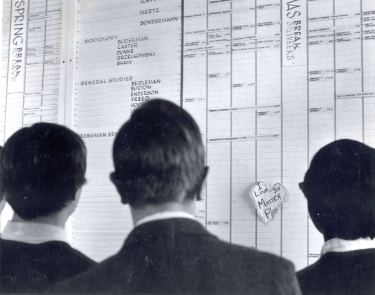
With the 100th anniversary of Colorado College coming up in 1974, the faculty launched a major study of the academic program. Political Science Professor Glenn Brooks headed up the study, which concluded that the college should develop a Block Plan, where students would take and faculty would teach only one course at a time. The faculty adopted the Block Plan and started teaching under it in the fall of 1970. This innovative one-class-at-a-time academic system became the hallmark of Colorado College.
Louis Lomax
African-American social critic, writer, author, and lecturer Louis Lomax, spoke at Colorado College on April 18, 1968.
Another Co-ed Dormitory
Mathias Hall, previously a men's dormitory, was converted into a coed dorm.
Associated Colleges of the Midwest
Colorado College joined the Associated Colleges of the Midwest.
NAACP
The NAACP began its first year at Colorado College in November with a voter registration drive in which students canvassed Colorado Springs to help register voters.
Black Student Union
Black Student Union (BSU) was founded.
Dick Gregory
Influential civil rights advocate Dick Gregory spoke during a press conference held at Colorado College.
Minority Enrollment
A Student-Faculty Committee on Minority Rights was formed by members of the college community who felt that minority enrollment needed to be addressed at Colorado College.
International Day
The first-ever International Day on March 26, 1970, included exhibits, films, and a dinner to foster appreciation and understanding of the 20-some international students at Colorado College.
Start of the Block Plan
Colorado College implemented the Block Plan at the beginning of the 1970 academic school year.
Residence Halls
All residence halls on campus were granted the option of housing both male and female students, if approved by majority vote of the residents of the hall.
Associated Women Students
The Associated Women Students (AWS) voted to dissolve their organization as "no longer practical or viable."
Ayuda
The student organization Ayuda was established on campus for women's health needs. One of its major goals was to press for equal numbers of men and women in the student body. At that time, there were almost twice as many males as females. It took approximately 20 years, but by the early 1990s, Ayuda's goal of a balanced student body was achieved.
Chicano Voices Raised
CC students found the Movimiento Estudiantil Chicano Aztlan (or MEChA). Seeking to educate, establish pride and identity in Chicano heritage, MEChA's mission of empowerment and cultural reclamation was taken under the umbrella of SOMOS in 1999.
Gay Liberation Front
President of the college Lloyd Worner vetoed the charter of the Gay Liberation Front at CC.
Admissions Policy Changes
Admissions policy changes in March 1972 encourage an equal male-to-female ratio.
Clarence Sterne, Jr.
Colorado College hired its first black full-time faculty member. Clarence Sterne, Jr. served as the college's tennis coach.
Title IX
Since Colorado College received U.S. Government funds for scholarships, scientific research, constructing dormitories, etc., Title IX had a major impact on the athletic activity at the college. Changes followed in the years and decades after.
Women's Athletic Facilities Protest
One of the first effects of Title IX was an increased awareness that Colorado College lacked the facilities to accommodate the expansion of female sports programs. To highlight this shortcoming in women's athletic facilities, in 1973, 20 female students staged a "shower in" in one of the men's locker rooms in the college's El Pomar Sports Center.
Women's Commission
The Women's Commission was formed to create a permanent organization designed to represent women's rights and interests. The primary goal of the Women's Commission was to present more instruction on women and women's accomplishments in academic courses.
Women's Athletics
Reacting to the pressures created by Title IX, President Lloyd Edson Worner hired Laura Golden to organize a formal intercollegiate sports program for female students. Golden engaged the student body to determine athletic interest, and eight intercollegiate varsity sports for females were established: field hockey, soccer, volleyball, basketball, snow skiing, softball, tennis, and track and field.
Minority Faculty Recruitment
The faculty passed a policy statement on minority faculty recruitment aimed at increasing the representation of minority groups.
Laurel McLeod
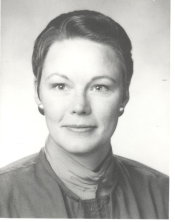
Laurel McLeod, hired in 1977, was the last employee to bear the title of dean of women. As dormitory rules for women students were progressively relaxed and reduced, the major role of dean of women had ceased to be necessary. The position evolved from dean of women, to dean of students, to finally vice president for student life during her tenure.
Victor Nelson-Cisneros, President's Leadership Award Namesake

Victor Nelson-Cisneros served Colorado College from 1981 to 2013, first as the assistant dean of the college and later as the associate dean of the college. He was integral in expanding and establishing diversity and inclusion programs, such as the Riley Scholars Program, ACM Minority Concerns Committee, and the ACM Minority Scholars Program. The eponymous Victor Nelson-Cisneros Diversity and Inclusion Award recognize members of the CC community who exemplify Nelson-Cisneros’ dedication to developing diversity and inclusion at CC.
Affirmative Action
The student body was inspired to create a petition which addressed a perceived "lack of adequate affirmative action guidelines for administrative hiring."
ACM Program for Minority Students
The Associated Colleges of the Midwest (ACM) Program for Minority Students and Academic Careers began, established to encourage minority students in ACM colleges to consider and prepare for academic careers.
Apartheid Rally for Divestment
Summer Crossroads Participants, June 1987
Sexual Orientation Added to CC's Anti-Discrimination Policy
Consortium for Faculty Diversity
CC joined the Consortium for Faculty Diversity (CFD). The early goals of the Consortium included encouraging U.S. citizens who were members of underrepresented minority groups to complete their graduate programs and to consider faculty employment in liberal arts colleges. The Riley Scholars-in-Residence Program grew out of our participation with the CFD. The program reflects the conviction that a strong minority presence on the faculty benefits the entire college community. Scholars of African, Asian, Hispanic, and Native American ethnic identity afford the college a diversity of experience and perspective otherwise difficult to attain. In addition to their teaching and scholarship, Riley Scholars interact regularly with students and participate in such functions as departmental seminars.
Bisexual, Gay, and Lesbian Alliance
The Bisexual, Gay, and Lesbian Alliance (BGALA) was founded.
Prioritizing Diversity
The Office of Minority Student Life was founded, headed up by Rochelle Mason '83. Championing and guiding the college towards a mission of greater cultural, racial, and socioeconomic diversity, the office transitioned in 2007 to the Office of Minority and International Students (OMIS) - continuing to be directed by Rochelle until 2009 and her appointment as a dean of the college. In July 2014, OMIS transformed into the newly inaugurated Butler Center.
Asian American Student Union
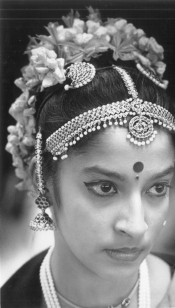
Students founded the Asian American Student Union (AASU) which became a chartered student organization in 1994.
Native American Heritage Week
The Native American Student Association sponsored the first annual Native American Heritage Week and Pow-Wow.
Support for Fight The Power
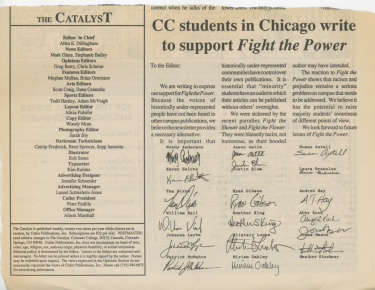 When Fight the Power (an underground newsletter) began appearing on campus, some anonymous students started writing parody zines called Fight the Shower and Fight the Flower, with racist undertones. A group of students who happened to be on a semester away in Chicago heard about the controversy and wrote in to the Catalyst with their support for FTP.
When Fight the Power (an underground newsletter) began appearing on campus, some anonymous students started writing parody zines called Fight the Shower and Fight the Flower, with racist undertones. A group of students who happened to be on a semester away in Chicago heard about the controversy and wrote in to the Catalyst with their support for FTP.
Minority Association of Pre-Health Students
The Minority Association of Pre-Health Students became a chartered student organization.
Mike Edmonds Joins CC
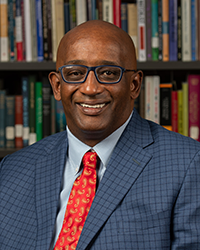
Mike Edmonds joined the Colorado College community in August of 1991 as the dean of students. With his prior experience in student life and as a faculty member at the University of Mississippi, Dean Edmonds quickly established himself as one of CC's leaders. In 2005, Edmonds transitioned to VP for Student Life/Dean of Students, continuing and expanding his role within the CC community.
Gorman Minority Scholars Program
The Gorman Minority Scholars Program began in September 1991 and ran until 1993. It worked to acquaint minority scholars at Gorman Middle School with college life at Colorado College through a buddy system with mentors from CC.
Festival of African Culture
Colorado College hosted its first annual Festival of African Culture on March 28, which took place in Armstrong Hall and included dancers, drummers, arts and crafts as part of "A Night in Africa."
African American Youth Leadership Conference
The first annual African American Youth Leadership Conference was hosted on campus.
Peterson Zah on Board of Trustees
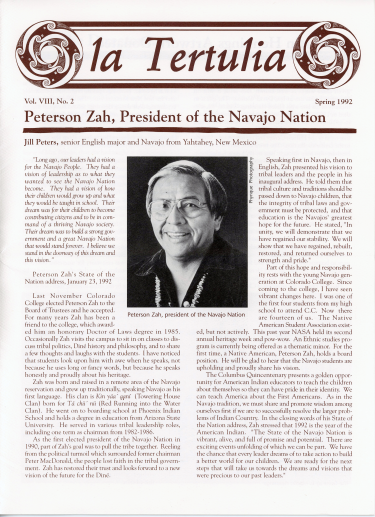
Former Navajo Nation President Peterson Zah was added to the Board of Trustees, as the first Native American/Navajo trustee.
Colorado College Symposium on Ethnicity and Identity
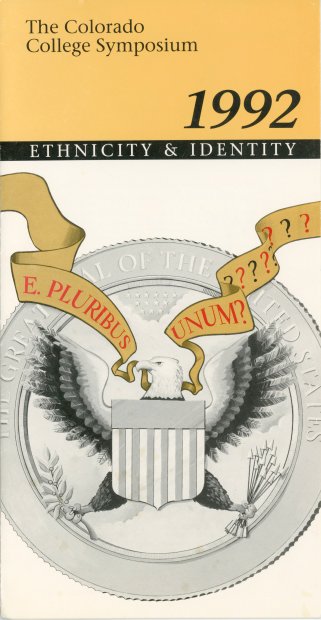
First White Woman President
Kathryn Mohrman became first white woman to serve as president of Colorado College. She occupied the office for nine years, from 1993 to 2002.
Campus Diversity Rally
The Accountability Coalition, in addition to representatives from the Asian American Student Union, Bi-sexual, Gay, and Lesbian Alliance, Black Student Union, Feminist Collective, Movimiento Estudiantil Chicano de Aztlan, and Native American Student Association, joined forces to organize a rally on May 8 to highlight the need for diversification on campus.
MOSAIC
The International Student Organization becomes the Multicultural Organization of Students and the International Community (MOSAIC).
Diversity Council
President Kathryn Mohrman created the college's first Diversity Council to give prominence and visibility to a strategic priority on diversity by the college. The Council was reconfigured in 1998.
Women's Studies Major
25 years after the Women's Commission was first organized, a Women's Studies major was recognized as part of the curriculum. Colorado College did not adopt a Women's Studies major until it had a female president (Kathryn Mohrman).
The Glass House
The Glass House becomes a permanent multicultural residence at Colorado College, after two years as a theme house. Built at the turn of the 20th century in a Moorish architectural style, the house - officially known as the Lennox House - was a legacy of William Lennox, a local banker and CC trustee from 1901-1936. Opened as a campus student center in September 1937, the Glass House is now home to a multicultural awareness learning, support, and programming community, supported by the Residential Life and Housing Office.
Summer Bridge Program
The Summer Bridge Program is inaugurated. Students are invited to campus for a one-block course in August if they identify as one of the following:
- First-generation college students (neither parent has completed a four-year college degree)
- QuestBridge Scholars
- Attended a high school that offered relatively limited opportunities for advanced coursework
Bridge Courses
Bridge courses are limited to 15 students, providing them the opportunity for extra attention and advice from the professor.
SOMOS
MECHA became SOMOS, an organization dedicated to educating students about Latino/a culture.
Vision 2010
President Richard F. Celeste introduces "Vision 2010," the goals of which were to:
- Hire more tenure-track faculty
- Provide more funds for faculty research and student Venture Grants
- Evaluate and improve the General Education requirements to include 3 units of Diverse Cultures and Critiques, The West in Time (one two-block course), 2 units of Scientific Investigation of the Natural World.
Student Diversity
Vision 2010 set a major goal of increasing diversity in the student body, which meant recruiting, retaining, and graduating more American ethnic minorities and international students. The percentage of minority students in the student body grew from 12-13 percent to 17-19 percent under Celeste's presidency, and international students grew to 6 percent.
Coretta Scott King
In 2003, Coretta Scott King delivered the William Jovanovich Lecture and Capstone Address at Colorado College to an overflowing crowd.
EQUAL
EQUAL (Empowered Queers United for Absolute Liberation), a student organization seeking to provide a safe space for all who are queer, questioning, gay, lesbian, bizexual, or transgendered, is founded.
Feminist and Gender Studies
Women's Studies became the Feminist and Gender Studies Program.
Queer-Straight Alliance
Queer-Straight Alliance was founded.
Additions to the Anti-Discrimination Policy
The college added "gender identity, gender expression" as an additional category for protection in Article IX of its Equal Opportunity Statement and in its Anti-Discrimination Policy.
Jill Tiefenthaler
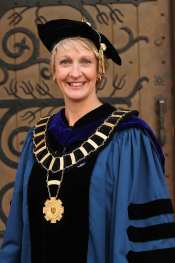
Jill Tiefenthaler became the second woman to serve as president of Colorado College.
Sandi Wong
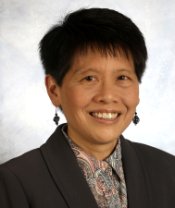
Sandi Wong, professor of sociology, became the second woman to serve as the academic dean of Colorado College.
President Obama
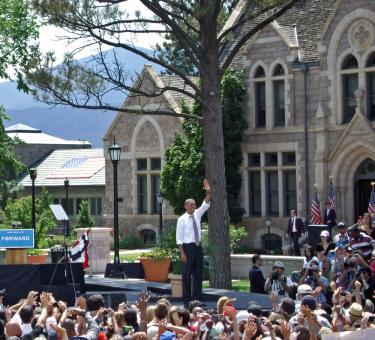
President Barack Obama visited Colorado College, drawing a crowd of more than 4,100 people to Cutler Quad.
Colket Center
The Colket Center for Learning Excellence sought to ease the adjustment to Colorado College for incoming under-resourced students.
African American Youth Leadership Conference
Colorado College hosted the 22nd annual African American Youth Leadership Conference.
Diversity and Equity Advisory Board
The Diversity and Equity Advisory Board was established to promote and support diversity and equity among staff and faculty.
Founding of The Butler Center
The Butler Center at Colorado College seeks to inspire and create an intellectual and social culture that is inclusive and respectful towards all. Serving as the college's hub for diversity, inclusion, and intercultural exchange, The Butler Center took over the duties of the Office of Minority and International Students (OMIS), established in 1990. Named for Ellis Ulysses Butler Jr. '40, one of Colorado College's earliest African American alumni, The Butler Center honors Ellis' legacy and generous gifts to his alma mater by working towards his vision of a more inclusive and welcoming future.
Paul Buckley joins CC
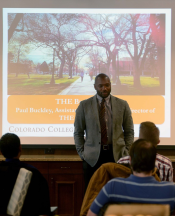
Paul Buckley joins CC as an assistant vice president and inaugural director of The Butler Center. Arriving from Dartmouth College, where he served as assistant dean of undergraduate students, Buckley holds a Ph.D. from Syracuse University, as well as a master's and bachelor's degree from the University of Albany. Leading the efforts of The Butler Center, Buckley works towards broadening diversity and inclusivity at CC.
Courageous Conversations
The Colorado College Student Government Association (CCSGA) initiated Courageous Conversations, a discussion series aiming to engage the student body in fruitful, productive conversations on highly stigmatized topics submitted by CC students. Courageous Conversations topics have included immigration, the hookup culture, political differences, gender and sexuality, and the petition to diversify the curriculum.
Ferguson Protests
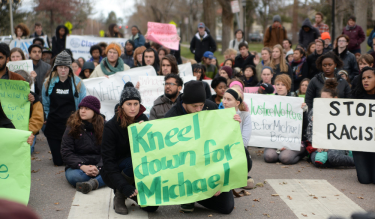
Students participated in protests as a response to the grand jury decision that police officer Darren Wilson would not be indicted in the death of unarmed teenager Michael Brown in Ferguson, Missouri.
Alliance with the Colorado Springs Fine Arts Center

Colorado College and the Colorado Springs Fine Arts Center announced an historic alliance. The partnership expanded learning opportunities, arts programming, and cultural resources for the Colorado Springs community. In recognition of the evolution of a nearly 100-year relationship between the two organizations, the center’s name was changed to the Colorado Springs Fine Arts Center at Colorado College.
Homecoming 2016 LGBTQIA+ Stories
At Homecoming 2016, receptions for LGBTQIA+ alumni and students, as well as alumni and students of color, were held. We spoke with four members of the CC community; Alan Woo '71, Han Sayles '15, Karl Jeffries '91, and Shanna Katz Kattari '06. These are their stories.
Responding to Representation: Staging Asia and Asian America
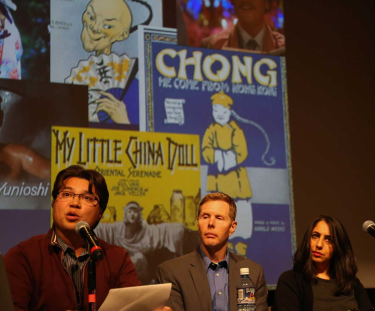
CC hosts panel discussion "Responding to Representation: Staging Asia and Asian America," focused on two plays - "The Mikado" by Gilbert and Sullivan and "Yellow Face" by David Henry Hwang - that were sharing rehearsal space and being performed the same weekend. Attended by both CC and Colorado Springs community members, the panel discussed the role and responsibility of those in the performing arts, the legacy of cultural appropriation, the realities of finding accomplished actors regardless of ethnicity, and the disheartening fatigue of continually challenging the homogeneity of Asian representations.
Examining Inequity
- In April, President Jill Tiefenthaler announced a campus-wide effort to better "listen to and understand the lived experiences of marginalized members of our community, in order to recognize our own role in creating and perpetuating inequity."
- The faculty voted to eliminate the West in Time general education requirement in an effort to move toward a more diverse and equitable curriculum.
Smudging and Pipe Ceremonies
In support of the cultural integrity of Indigenous/Native American students, faculty, staff, and guests, Colorado College in September 2018 adopted a Smudging and Pipe Ceremonies Policy. CC designated venues on campus for Indigenous/Native American students, faculty, staff, and guests to practice smudging and/or pipe ceremonies associated with traditional religious ceremonies and observances. Additionally, the college began recognizing and supporting Indigenous/Native American students engaging in these sacred practices within the privacy of their residence hall rooms.
Tava Quad
At its February 2019 meeting, the Colorado College Board of Trustees unanimously and enthusiastically approved naming Tava Quad in response to a request from the Indigenous and Native Peoples of CC. "Tava" means "Sun Mountain," and is the name used by the Tabegauche Band of the Ute People for Pikes Peak. The area designated as Tava Quad was previously known informally as Armstrong Quad.
First Black Woman Named as Dean of Faculty
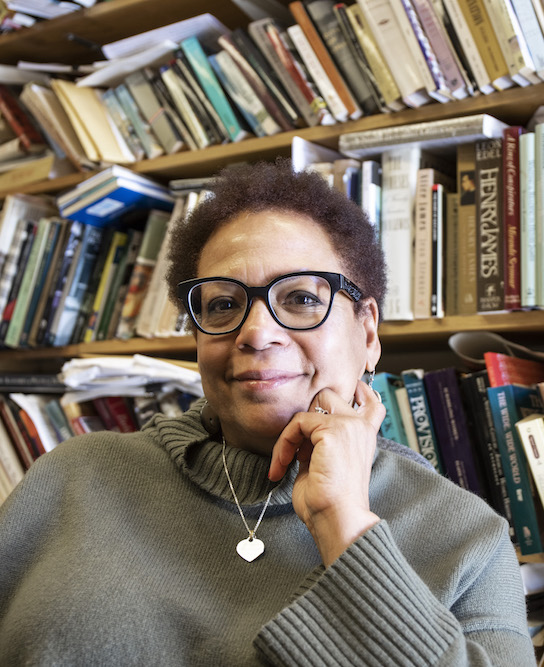
Claire Oberon Garcia, professor of English, is the first Black woman named as Dean of the Faculty at Colorado College. She first came to CC in 1990 as a Riley Scholar and joined the English department a year later as a tenure-track faculty member.
DEI Leadership Team
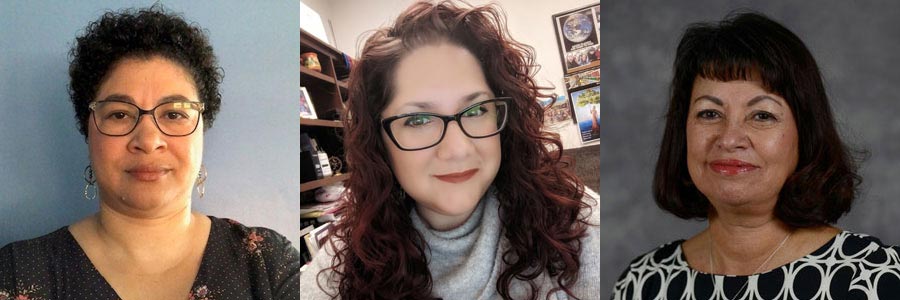
In June of 2020, CC announced that a team of three leaders would be joining the college to form the Diversity, Equity, and Inclusion Leadership Team, with one member of the team focusing on the academic program; a second on students; and a third on employees and college business relations. Peony Fhagen joined the CC community as the new senior associate dean for equity, inclusion, and faculty development, Rosalie M. Rodriguez joined CC as the senior associate dean of students for equity and inclusion/director of the Butler Center, and Barbara J. Wilson was named to serve as the interim director of diversity, equity, and inclusion for staff.
$1 million for Antiracism Commitment
To enhance and accelerate the work of the new DEI leadership team CC Board of Trustees Chair Susie Burghart '77 donated $1 million to further the college's Antiracism Commitment. "I wanted to underscore how important this initiative is to all of us - as educators, parents, students, staff, and alumni," Burghart says. "These experts will guide the college in long-needed work that is now even more crucial. This is a moment when CC can lead and make a difference."
First Black Woman Named as Acting Provost
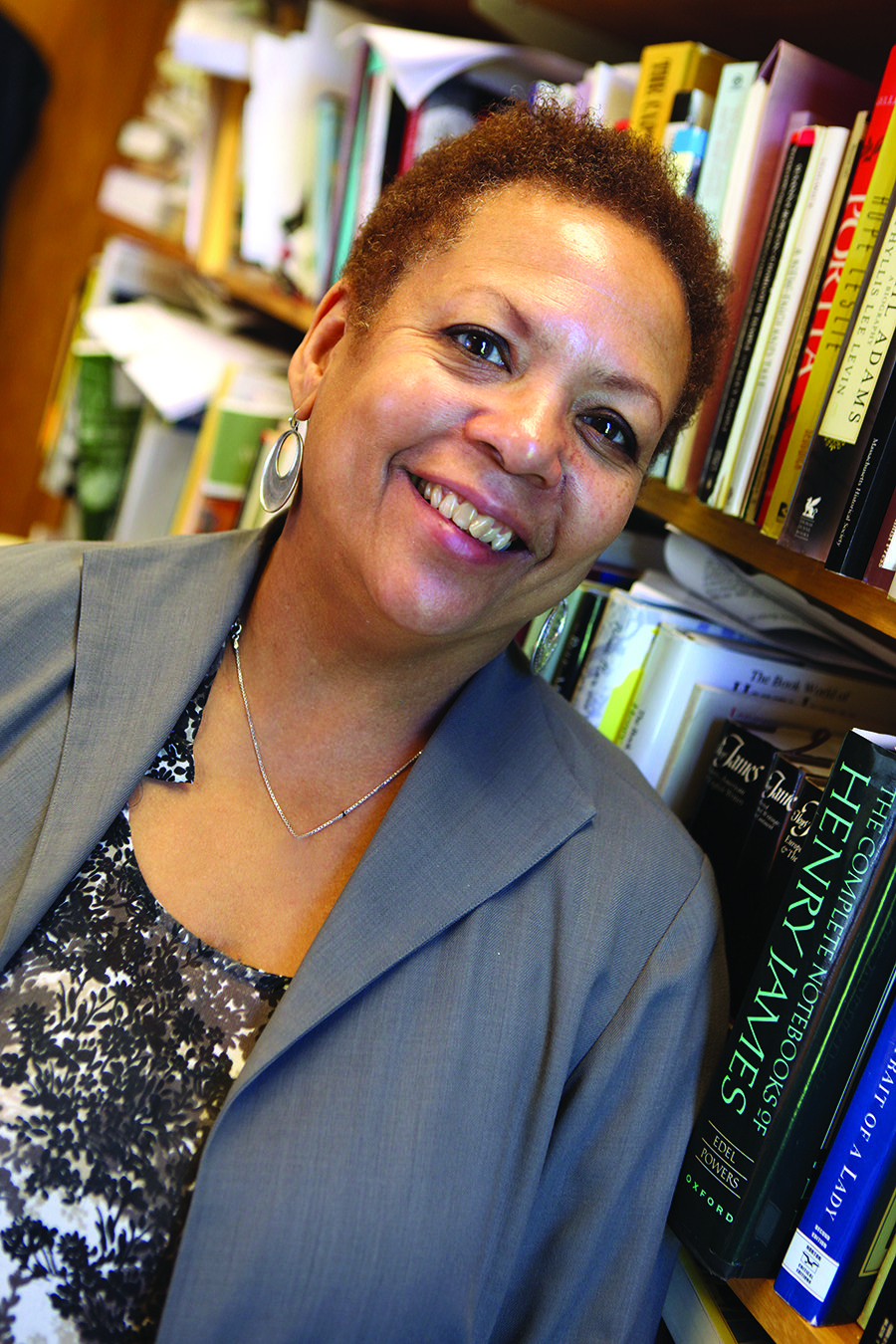
Claire Oberon Garcia, professor of English, is the first Black woman named as Acting Provost at Colorado College. She will simultaneously continue her role as Dean of the Faculty.
Acting Co-Presidents Mike Edmonds and Robert G. Moore

On July 1, 2020, following the departure of former President Jill Tiefenthaler, Mike Edmonds, dean of students and vice president for Student Life, and Robert Moore, senior vice president for Finance and Administration, became acting co-presidents of Colorado College. Edmonds started at CC in 1991, working to improve the student experience, residential life, student opportunities, campus safety, and career planning. He is the first Black leader to serve as president. Moore joined the college in 2009 and manages the college's finances, Human Resources, Facilities, dining operations, purchasing, and the bookstore's operations.
CC Receives $575,000 Grant Supporting Black Education Students
In October 2020, CC received a $575,000 grant from the Sachs Foundation to support Black students interested in pursuing careers in education. The grant will be used to support summer fellowships, academic-year internships, and scholarships, including two Master of Arts in Teaching scholarships. "Such a mission necessitates the active recruitment, development, and support of Black, Indigenous, and people of color (BIPOC) teachers, but especially Black teachers whose presence in the classroom yields positive social, cognitive and academic outcomes for all students, regardless of race," said Associate Professor and Chair of the Education Department Manya Whitaker. "We are extremely grateful to the Sachs Foundation for removing the economic barriers that prevent many Black students from considering a career in the classroom."
CC Joins Liberal Arts Colleges Racial Equity Leadership Alliance
In the fall, Colorado College joined the University of Southern California Race and Equity Center's newly established Liberal Arts Colleges Racial Equity Leadership Alliance. The group works together to share strategies, seek advice, and identify ways to leverage collective impact towards racial equity in higher education.
First Woman of Color Named as CC's 14th President
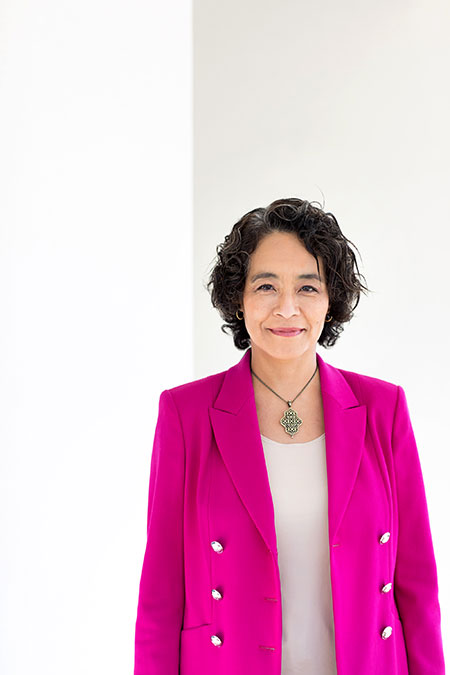
On December 9, 2020, Colorado College announced its incoming 14th President, L. Song Richardson. Richardson is a legal scholar, dedicated educator, lawyer, and expert on implicit racial and gender bias, and assumed the presidency on July 1, 2021. Richardson, who is Black and Korean, is the first woman of color to hold the presidency at Colorado College. Previously, Richardson was the dean and chancellor's professor of law at the University of California, Irvine School of Law. When she was appointed to that post in January 2018, she was the only woman of color to lead a top-30 law school.
"Everything about CC resonated with me," says Richardson. "The more I learned, the more intrigued I was by this community of innovative changemakers and problem-solvers. I am honored to join CC and the Colorado Springs community, and look forward to building a bright future together."
Emily Chan and Pedro de Araujo Named New CC Deans

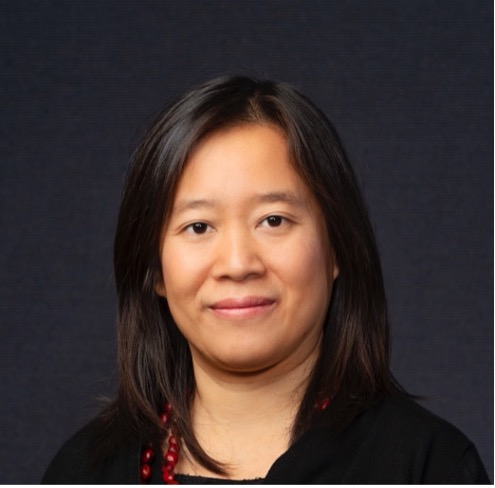
Emily Chan, professor of Psychology, and Pedro de Araujo, associate professor of Economics, were appointed by President Richardson to new positions as dean of the faculty and dean of the college, respectively. Chan will be responsible for supporting faculty and academic staff development. De Araujo will be responsible for the further development of the student academic experience.
Ed Robson Arena Ribbon-Cutting Ceremony

The ribbon-cutting ceremony for the new Ed Robson Arena and the Mike and Barbara Yalich Student Services Center was held on September 18, 2021. The facility is part of the Colorado Springs’ City for Champions (C4C) initiative which aims to bring more tourism to the Pikes Peak area. The Ed Robson Arena, named after major donor Ed Robson ’54, P’79, G’11, serves as the first-ever home venue for CC’s men’s hockey team. The adjoining Yalich Student Services Center, named after community leader Barbara Neely Yalich ’53 and former CC hockey team captain Milo “Mike” Yalich ’50, provides a central location for CC’s health and wellness services, bookstore, mail center, and other communal spaces.
Stroud Dedication

In December 2021, Colorado College named the fourth-floor club level of the Ed Robson Arena for outstanding athlete and scholar Kelley Dolphus Stroud ’31, one of CC’s first Black graduates. The dedication ceremony brought together Stroud family members from across the country and members of the broader Colorado Springs community. “I hope the ones who came before us are able to see what their example has created, even under sometimes extreme conditions,” said Kelley Dolphus Stroud’s nephew Carl Bourgeois.
Feminist and Gender Studies
Feminist and Gender Studies officially becomes a Department.
We acknowledge the work of Laurie Laker ’12, Zita Toth '16, CC Archivist Jessy Randall, Amy Brooks, and others on the creation and curation of this timeline and its content. Additional reading includes, but is not limited to: Robert Loevy's "Colorado College: A Place of Learning, 1874-1999," Robert Loevy's "Colorado College: 1999-2012, into the 21st Century," and J. Juan Reid's "Colorado College: The First Century, 1874-1974," all available at the Colorado College Bookstore.
We know we haven't captured all the important moments in CC history. If you have suggestions for additions or changes to this timeline, please contact CC Communications.




